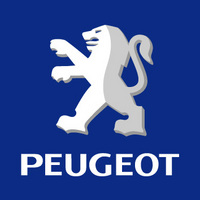Big Car Performance Wins International Engine of the Year
 |
AUTO CENTRAL - June 23, 2008: Peugeot’s commitment to developing fuel efficient engines that deliver big car performance is rewarded with success at the 2008 International Engine of the Year Awards, winning the 1.4 -1.8 litre category for the second year in a row.
“This is one of the first small engines able to deliver performance normally found in bigger engines.” Stated competition judge Dan Vardie from Romania’s Autoshow.
In 2007 the award strengthened Peugeot’s sustainability credentials with the win over the 1.5-litre Toyota Prius. The continued success of this engine in the 2008 awards adds further strength to Peugeot’s domination of the low emission, high power small engine segment of the market.
If proof were ever needed that engine collaboration between automotive manufacturers can succeed, PSA Peugeot’s powertrain partnership with BMW is a perfect example, spawning the award-winning 1.6-litre turbo unit. Peugeot and BMW’s four-cylinder has dominated the class this year, collecting 136 more points than its closest rival, the 1.8-litre TFSI Audi engine that powers a plethora of VW Group products.
Riding high on the growing trend of combining power with downsized powertrains, the 1,598cc unit had the judges talking positively, including Nikos Kounitis from Greece’s 4Wheels magazine, who commented that he thought the motor represented “downsizing at its best”.
Constructed from light alloy, the heart of the Peugeot 207 and 308, features a twin-scroll turbocharger, gasoline direct injection, twin overhead camshafts, roller-type drag arms that have been optimised for minimum friction, and hydraulic valve play compensation elements.
Furthermore, the outlet valves are filled with sodium to aid cooling, and the intake camshaft offers infinite phase adjustment, setting the engine’s valve timing to the driver’s requirements.
All this technology brings together power and economy in one appealing package for consumers: 110kW at 5,500rpm and 260Nm of torque maintained from 1,600 to 5,000rpm is complemented with an average fuel consumption of 7.0 L/100km.
“It’s full of technology, and is the best in its class for torque, power and pleasure,” concludes France’s motoring journalist, Christophe Congrega.
In Australia this engine is matched to the popular Peugeot 207 and all new 308 model variants, both versatile and efficient vehicles representing the height in European style.


